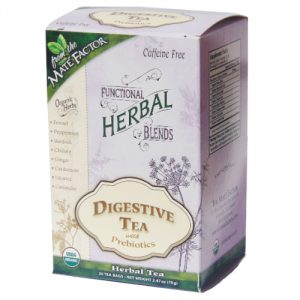Most people are well-versed with the health perks that come with taking dietary fiber and probiotics. However, few are aware of the nutritional merits of consuming prebiotic foods. In fact, the majority of people fail to take enough prebiotics, which can exacerbate indigestion, increase inflammation and reduce immune function.
Primarily, probiotic foods are paramount in enhancing gut health and overall wellness. Conversely, prebiotic foods are responsible for “feeding” probiotics.
What are Prebiotics?
Prebiotics represents a kind of non-digestible fiber compound that passes through the upper section of the gut without being digested. Once the prebiotics reaches the colon, they get fermented by the tract’s microflora.
How Prebiotics Work Jointly with Probiotics
Although the health perks of probiotics are widely known, prebiotic foods remain under the radar. Overall, the fiber obtained from whole plant foods plays a significant role in nutrient absorption, gut, and digestive health. Prebiotics work in tandem with probiotics, leading to heightened levels of human health.
When the prebiotics gets across to the colon without being broken down by either digestive enzymes or gastric acids, they bring about constructive changes in the gut and organs. Essentially, prebiotic fiber the primary nutrient sources for probiotics and other beneficial bacteria that reside in the gut.
Prebiotics are particularly useful for many, who suffer from conditions affecting the digestive tract, including Crohn’s disease or IBS. Jointly with probiotics, these elements maintain the correct balance of microorganisms.
The vast majority of supplements and medications result in some side effect. In contrast, adverse effects of prebiotics are unusual. Nonetheless, you need not take high doses of prebiotic supplements as it can lead to mild abdominal pain and bloating.
Prebiotic fiber is associated with numerous health benefits including healthier cholesterol levels, improved gut health, better digestion, and proper hormonal balance among others. Foods rich in these compounds are dandelion greens, asparagus, bananas, chicory, garlic, and onions.
References
http://paleoleap.com/need-know-prebiotics/
https://www.prebiotin.com/prebiotics/prebiotics-vs-probiotics/
Related Products



Leave a Reply